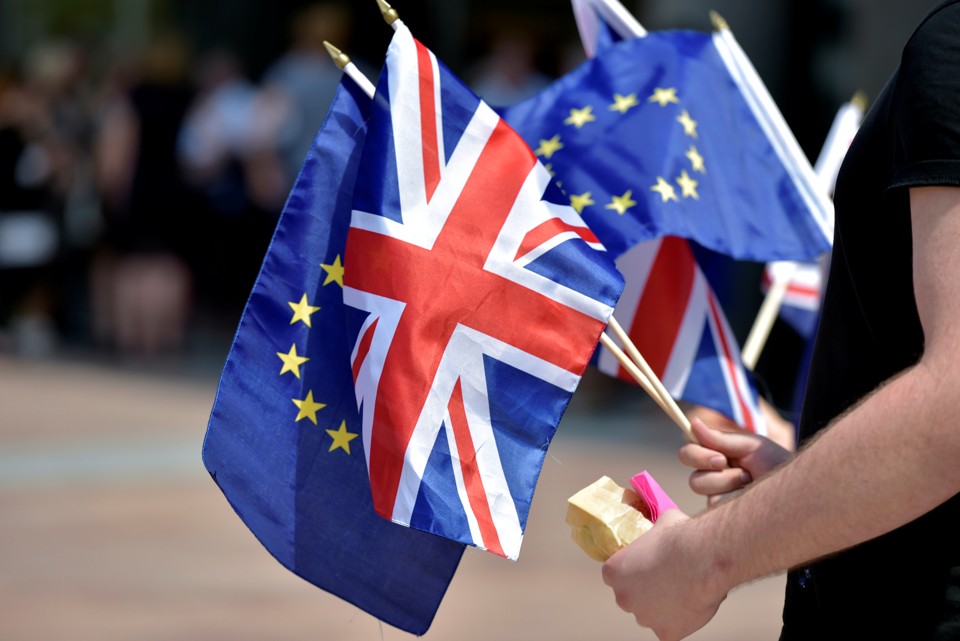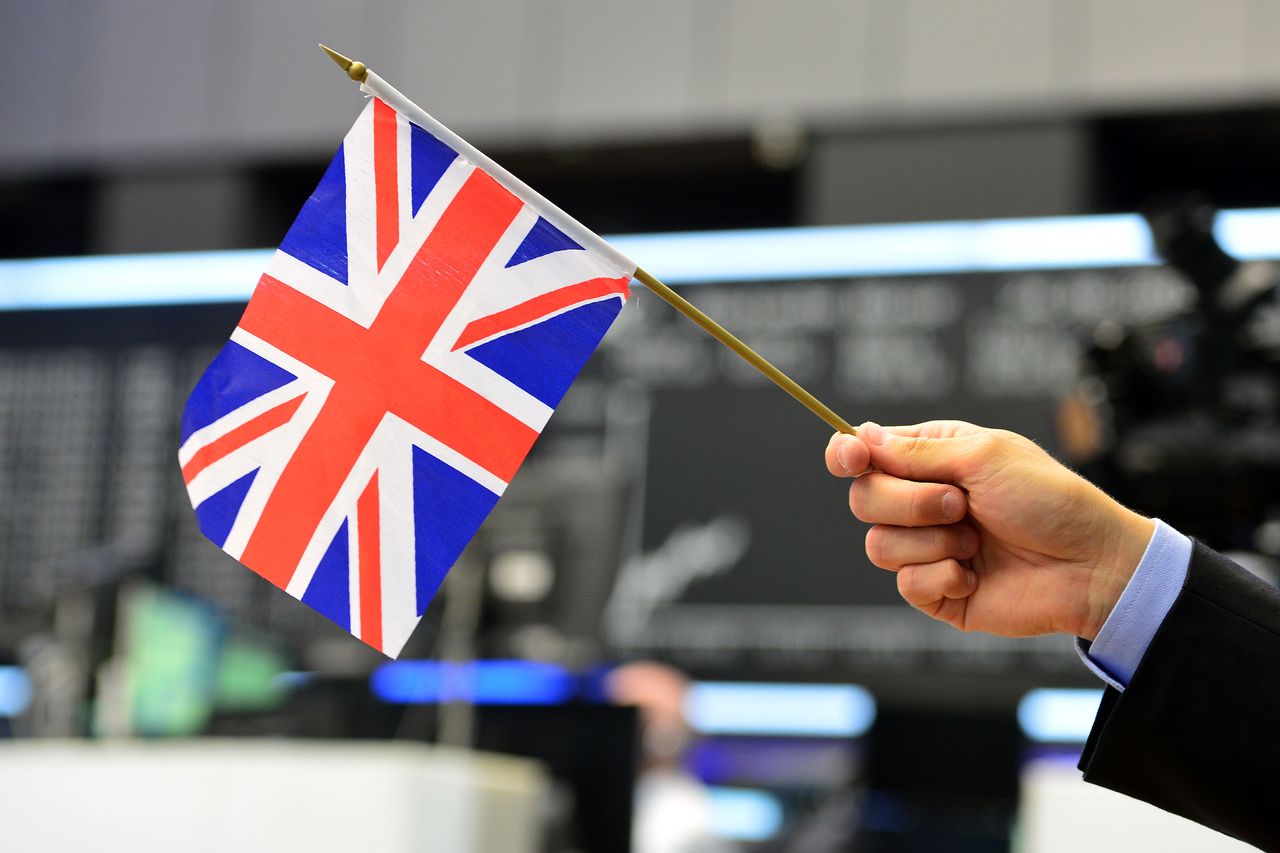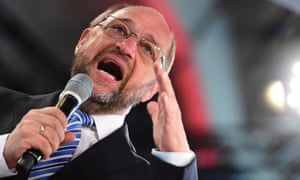Financial Markets and Economy
 Why Brexit Is So Bad for the Global Economy (The Atlantic)
Why Brexit Is So Bad for the Global Economy (The Atlantic)
Great Britain’s decision to extricate itself from the EU has consequences that are at once far-reaching and unknown. By Friday morning, no market was immune. Great Britain’s currency, the pound, had fallen to its lowest levels since 1985, and the FTSE (an index of the London stock exchange) and DAX (a German stock index) plummeted. In the U.S., markets opened in the red, gold (a commodity that many investors flee to at times of uncertainty) was up, and traders around the globe prepared for a volatile day amid the question of what the future will look like with the U.K. untethered from the European Union.
Stocks Plummet As Brexit Punishes Global Markets (Sky News)
Global markets were plunged into turmoil after the UK voted to leave the EU, though the FTSE 100 was spared the worst of the pain by the time it closed in a roller-coaster session.
US stocks just wiped out their gains for the year (Quartz)
Hours after the UK voted to quit the European Union, investors put stocks on notice.

U.S. Politics Scares Overseas Investors (Bloomberg View)
Sometimes, an economic paper delivers such a disturbing result that you have no choice but to sit up and take notice. That was the case for me, when I saw this new study by Stony Brook University’s Marina Azzimonti. Azzimonti’s disquieting hypothesis is that political partisanship is deterring overseas investment in the U.S.
 The sky has not fallen after Brexit but we face years of hard labour (Telegraph)
The sky has not fallen after Brexit but we face years of hard labour (Telegraph)
It is time for Project Grit. We warned over the final weeks of the campaign that a vote to leave the EU would be traumatic, and that is what the country now faces as markets shudder and Westminster is thrown into turmoil.
The stunning upset last night marks a point of rupture for the post-war European order.
Stocks Send an Inflation Signal (Wall Street Journal)
The message from the bond market this quarter has been that inflation isn’t a threat. But the stock market is sending a different message.
Currency expert warns the British pound faces a 'grave danger' in the weeks ahead (Yahoo! Finance)
In the wake of the surprise UK EU referendum vote, currency markets went haywire.

Fed’s plans to raise rates again go awry (Market Watch)
The Federal Reserve must feel that its mascot is Wile E. Coyote, whose persistent and ingenious efforts to catch the Roadrunner were routinely spoiled by bad luck and bad timing.
 Gold Sales Surge on Brexit Vote (Fortune)
Gold Sales Surge on Brexit Vote (Fortune)
Gold dealers in London reported surging demand for coins and bars on Friday, with some saying stocks were tight, after a shock vote for Britain to leave the European Union sent financial markets into meltdown and drove the pound lower.
Pension Funds Turn In Vain To Hedge Funds (ETF)
Hit by a “perfect storm” that combined a decade (2000-2009) in which the S&P 500 lost about 1% a year with a rising tide of pension obligations, public workers’ pension funds across the country increasingly began turning to riskier alternative investments (such as hedge funds) in an effort to boost returns and close the gaps in their underfunded plans.
Crispin Odey’s Main Hedge Fund Said to Gain 15% on Brexit Vote (Bloomberg)
Hedge-fund manager Crispin Odey, who had conducted a private poll ahead of the vote on the U.K.’s referendum on membership of the European Union, gained more than 15 percent in his flagship hedge fund on Friday, according to a person familiar with the situation.
Do the Experts Know Anything? (Bloomberg View)
This has been a terrible day for experts.
 How bad will Brexit get? Here's what top economists are saying. (Vox)
How bad will Brexit get? Here's what top economists are saying. (Vox)
In the months leading up to Britain’s referendum on whether to leave the European Union, many economists warned over and over again that a "Brexit" could have awful ripple effects: Britain could lose its favorable access to European markets if it left; the uncertainty could dry up business investment; the country could tumble into recession.
The UK may have committed 'an act of economic self-harm with global ramifications' (Yahoo! Finance)
In a stunning development, British voters have voted to leave the European Union.
Banks Are The Biggest Losers In Brexit Panic (Buzz Feed)
As global financial markets went into panic mode Friday, the world’s biggest banks emerged as the biggest losers of the U.K.’s decision to leave the European Union.
Brexit is a middle finger from the baby boomers to young people like me (Vox)
The United Kingdom has voted to leave the European Union, 52 percent to 48 percent.
Politics
 EU parliament leader: we want Britain out as soon as possible (The Guardian)
EU parliament leader: we want Britain out as soon as possible (The Guardian)
A senior EU leader has confirmed the bloc wants Britain out as soon as possible, warning that David Cameron’s decision to delay the start of Brexit negotiations until his successor is in place may not be fast enough.
 Brexit Should Be A Warning About Donald Trump (New Yorker)
Brexit Should Be A Warning About Donald Trump (New Yorker)
As Donald Trump stood in front of the Trump Turnberry golf resort, in Scotland, the morning after the vote for Brexit, he was asked to contemplate his own place in the world, and his power over the minds of the British. “Do you think anything you said in the United States influenced voters here in Britain when it comes to leaving the E.U.?” a reporter asked, as a bagpiper stood watch. “Good question,” Trump replied, squinting from under a white “Make America Great Again” baseball cap.
Technology
 Gamer without hands builds this controller for his feet (Futurity)
Gamer without hands builds this controller for his feet (Futurity)
A video gamer who lost both hands to illness can now play again, thanks to a foot-activated controller he designed and built with two fellow engineering students.
Is Cause & Effect Limited By The Speed Of Light? (Forbes)
The speed of light is usually thought of as a speed limit for how fast an object can travel, but you’re right to also think of it as a speed limit on the transfer of information. If you want an object to influence another object, you first have to transfer some information around. In the case of light, this influence can come in the form of light arriving on a detector, or perhaps a burst of radio waves, and this light unsurprisingly traverses the cosmos at precisely the speed of light.
Health and Life Sciences
 Genetic Sequencing Gets Boost From A New Proofreading Enzyme (Popular Science)
Genetic Sequencing Gets Boost From A New Proofreading Enzyme (Popular Science)
When a virus invades a cell, it uses that cell's machinery to replicate itself by throwing the typical process for replicating genetic material into reverse. This strategy is called reverse transcription, and it's messy, leading to numerous errors in the copied sequences. According to experts, this sloppiness might be a fluke, but it has likely turned into an evolutionary strategy to promote viral diversity and mutation, helping viruses stay ahead of the human immune response.
 Could a ‘youthful’ protein protect arteries from plaque? (Futurity)
Could a ‘youthful’ protein protect arteries from plaque? (Futurity)
A protein called IGF-1, which is found in high levels in young people, might offer a way to prevent arteries from clogging as we age, according to early results with mice.
“The body already works to remove plaque from arteries through certain types of white blood cells called macrophages,” says Yusuke Higashi, assistant research professor at the University of Missouri School of Medicine and lead author of the study.
Life on the Home Planet
 Plants Grown In Simulated Mars Conditions Found Safe To Eat (Popular Science)
Plants Grown In Simulated Mars Conditions Found Safe To Eat (Popular Science)
In greenhouses at Wageningen University in the Netherlands, scientists have been growing a very special crop. Since 2013, an experimental group of plants have taken root in soil meant to simulate that on the moon and Mars. The research was funded through a crowdfunding campaign in partnership with Mars One, the project that hopes to send volunteers on a one-way trip to Mars.



